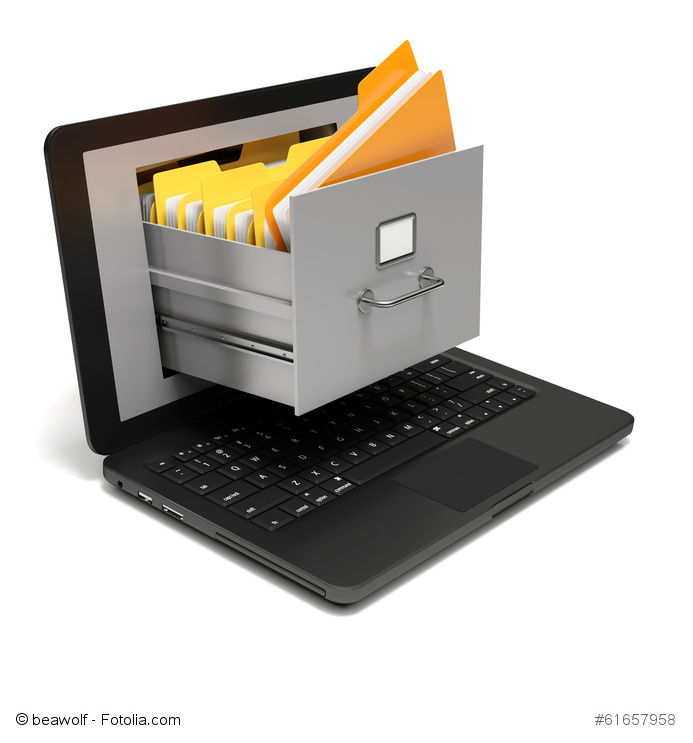GDPdU: Principles of Data Access and Auditing of Digital Documents
Whether it’s electronic archiving or e-mail archiving, businesses must give close attention to the Principles of Data Access and Auditing of Digital Documents, known in Germany as the GDPdU.
Too often businesses wait until a tax audit is pending to ask the question as to what the rules are for retaining digital documents.
These rules are set forth in administrative instructions issued by the German Federal Ministry of Finance, the GDPdU, and the Principles for the Proper Management and Retention of Books, Records and Files in Electronic Form and for Accessing Data, better known as the GoBD.
Taxpayer requirement to cooperate with data access
The most important point covered by these instructions is the requirement on the part of taxpayers to cooperate in providing government auditors access to data. This means that it must always be possible to access data during any statutory audit. Not only must the auditor be able to read the information, but evaluate it as well. Readability must also be ensured in cases involving data medium transfer. There are a number of formats authorized for data media transfers, extractions and storage.
GDPdU format: What is the prescribed format?
If you want to correctly implement the provisions of the GDPdU, the first thing you’ll need to do is identify those file formats that the tax office considers permissible. What must you keep in mind for an audit involving data medium transfer? The official auditor needs access to the data and you must adhere to the description standard for the data medium transfer. When do a company’s files fulfill the requirements of the GDPdU? The important thing here is that the tax authorities be able to reliably read the data using their auditing software. For this reason, the following file formats are currently deemed permissible:
- Access
- ASCII delimited
- ASCII fixed length
- ASCII print files
- dBase
- EBCDIC data
- Excel
- Lotus 123
- SAP/AIS files
- AS/400 data descriptions are possible in RDE data description conversion
All other formats must be converted into readable file formats before the statutory audit.
GDPdU cashiering: What is the prescribed cashier or POS system?
Tax offices require that cashier and point of sales (POS) systems meet certain criteria. It used to be enough to simply save and document various receipts, invoice vouchers and other written records. Since 2002, however, this information must also be stored in electronic form and meet the criteria stipulated in the GDPdU. All cashier and POS systems now have to be appropriately upgraded. And since these are all requirements established by the Federal Ministry of Finance, it is imperative that they be strictly observed for your next statutory audit. Currently the standard is that new cashier and POS systems be “GoBD/GDPdU compliant.”
GDPdU archiving: Legally compliant electronic archiving
Must everything really be digitally archived? No! You do not have to digitize all important paper documents. After all, a digital archive is not a viable solution for each and every business. The important thing is that all relevant data be available during a statutory audit. Most of the systems used in accounting and other administrative areas store such important information and enable it to be exported.
GDPdU finance ministry: Rules for retaining digital documents published by the Federal Ministry of Finance
The Federal Ministry of Finance establishes the policy regarding data access in terms of taxation and tax audits. The GDPdU contains the guidance applicable for the tax offices when they need access to data during a digital government audit and stipulates the requirements for corporate data processing systems. It is important that a tax auditor be able to access the data, evaluate it and, as necessary, request that it be provided on a storage medium, which generally takes the form of a CD-ROM, DVD or disk.

